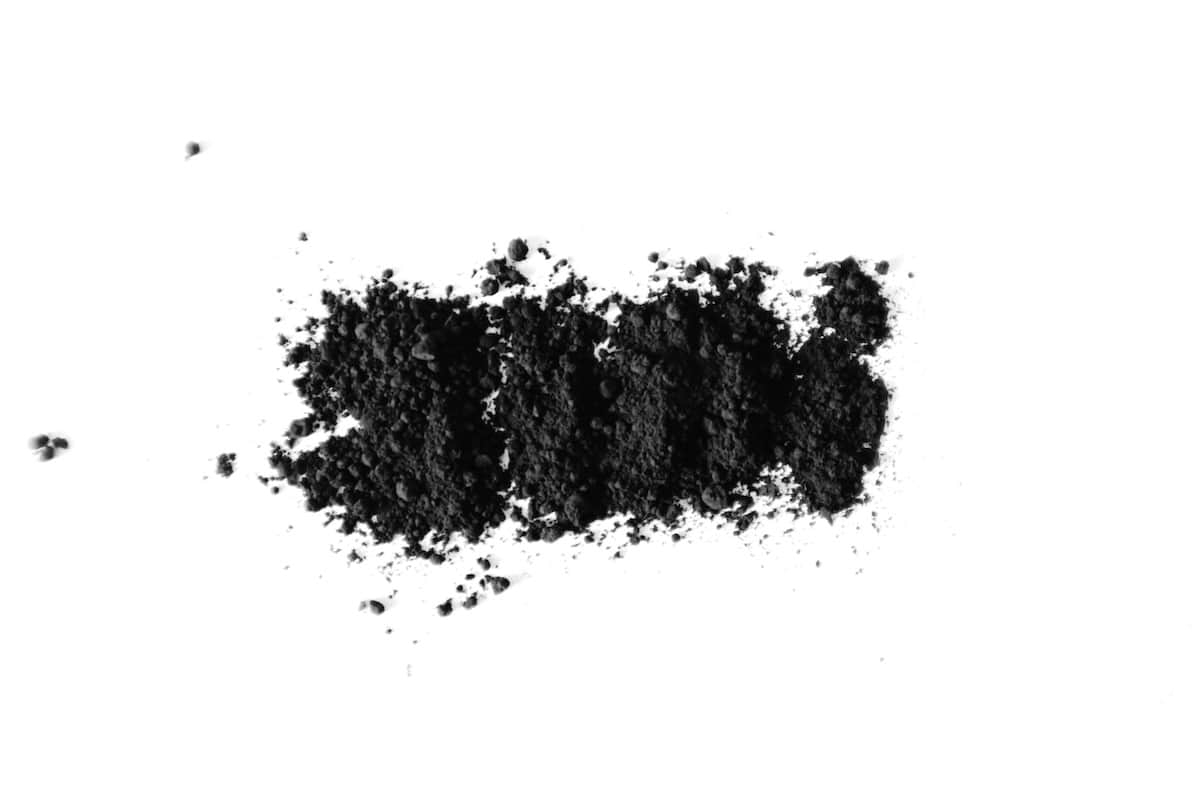Last update: July 29, 2025
6 minute read
Rhodiola For Energy: How Does This Adaptogenic Herb Improve Mental Clarity and Sustain Physical Endurance?
Discover how Rhodiola for energy offers steady, crash-free energy by improving endurance, mental focus, and stress resilience without the drawbacks of caffeine.

By Derick Rodriguez, Associate Editor
Edited by Dr. Dimitar Marinov, MD, RDN, PhD

Ever find yourself battling afternoon fatigue and desperately reaching for yet another cup of coffee—only to crash later? You're not alone. Rhodiola rosea—sometimes called golden root or arctic root—is rapidly gaining attention as the smarter, more sustainable alternative to caffeine.
Packed with adaptogenic compounds that have been studied for their potential to improve mental clarity and support energy, Rhodiola may help the body manage stress—often without the jitters or sleep disruptions some people experience with coffee.
Curious about a plant-powered solution to beat stress and fatigue naturally? Read our complete guide to Rhodiola supplements and upgrade your productivity, resilience, and overall wellness today.
Key takeaways
- Rhodiola’s adaptogenic compounds help your body resist and manage physical, emotional, and mental stress
- It may reduce fatigue while boosting mood and alertness
- Rhodiola improves cellular energy production by supporting mitochondrial function, promoting sustained energy
What is Rhodiola rosea?
Rhodiola rosea is a resilient herb that thrives in the cold, rugged mountains of Europe and Asia. For centuries, traditional healers have turned to the golden root to enhance work performance, combat fatigue, and alleviate altitude sickness.
Today, modern science attributes these wide-ranging benefits to two powerful bioactive compounds: rosavins and salidroside. These natural substances are central to Rhodiola’s adaptogenic effects, helping your body resist physical, chemical, and environmental stressors.
A long history
Rhodiola has long been prized in Russia and Scandinavia for boosting stamina during brutal winters.
Today, researchers continue exploring its impact on athletic performance, mood, and cognition. Evidence suggests it may ease mild-to-moderate depression, reduce stress-related fatigue, and sharpen mental performance.
But how does one root influence both mind and body? Rhodiola supports efficient cellular energy production and promotes neurotransmitter balance, lifting stamina and mood simultaneously.
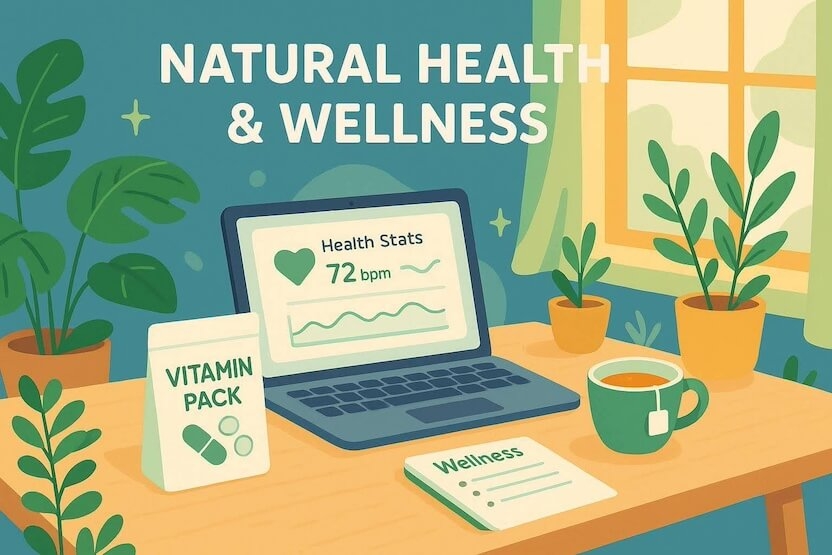
How does Rhodiola work?
Unlike stimulants that spike—and crash—energy, Rhodiola is an adaptogenic herb: it stabilizes physiological responses so your body adapts to stress more gracefully.
Clinical note: Rosavins (rosavin, rosin, rosarin) and salidroside modulate serotonin, dopamine, and norepinephrine, the very chemicals tied to mood and mental alertness.
In plain English? These compounds keep critical brain chemicals in a healthy range, which may mean better mood, sharper focus, and steadier energy.
Compound Group | Examples | Main Benefits |
|---|---|---|
Phenylpropanoids | rosavin, rosin | Adaptogenic, antioxidant |
Phenylethanol derivatives | salidroside | Fatigue reduction, neuro-protection |
Flavonoids | rhodionin, rhodiolin | Cognitive and antioxidant support |
Wondering why Rhodiola contains so many active compounds? A broader phytochemical profile means Rhodiola acts on multiple bodily pathways, offering combined benefits for stress resilience, immune function, mental clarity, and energy production.
— Dr. Dimitar Marinov, MD, RDN, PhDStandardized Rhodiola rosea extracts—verified for precise rosavin and salidroside content—may support mental clarity, and alleviate everyday fatigue, delivering a reliable adaptogenic lift for sustained productivity.
Rhodiola’s role in energy improvement
Fighting fatigue
Chronic fatigue can sink productivity and mood. Rhodiola may help with that, supporting steady, crash-free energy.
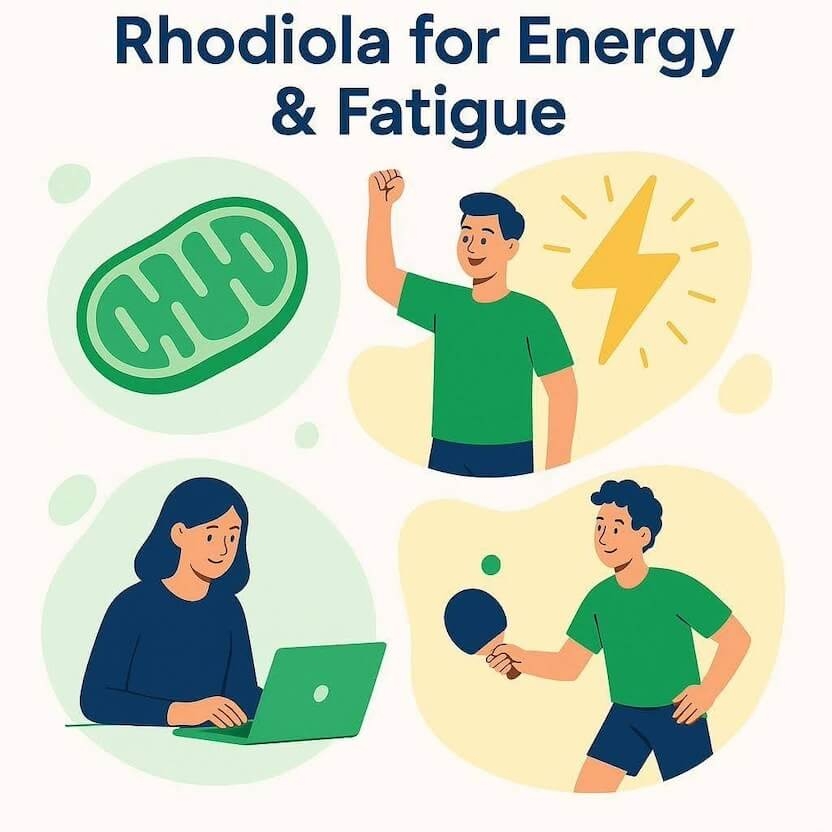
In one eight-week trial, participants who took 200 mg of Rhodiola twice daily reported reduced mental and physical fatigue and improved alertness compared with placebo.
VitaRx Tip
The word adaptogen was coined in 1947 by Russian scientist Nikolai Lazarev. It's still not an official medical or pharmacological term.
Mental clarity and focus
Beyond stamina, Rhodiola improves attention, memory, and cognitive speed. Some users report clearer focus within a few days or weeks of supplementation, rather than the immediate effect seen with caffeine, and often without a late-day crash.
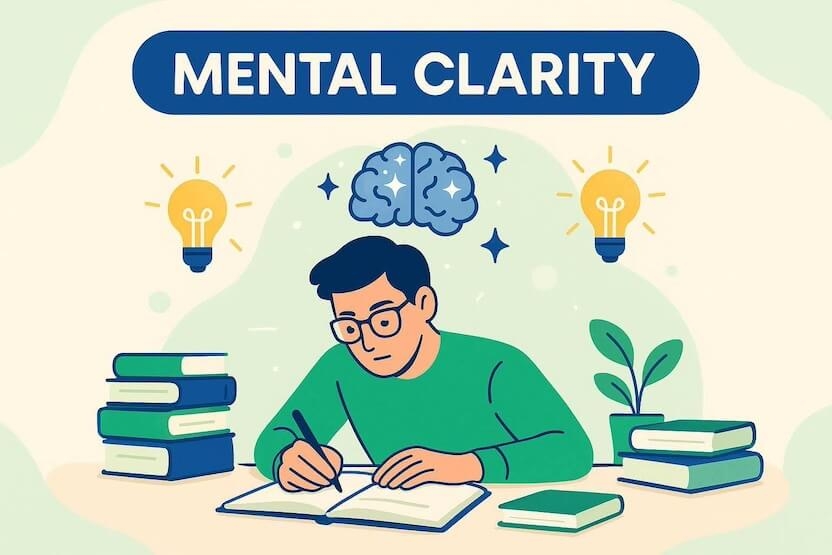
What science says about Rhodiola
Several small, short-term clinical studies suggest that Rhodiola may help reduce fatigue and improve stress responses, although larger, high-quality trials are still needed.
You might ask, Is Rhodiola just for athletes? Not at all! Everyday people under regular stress (work, commuting, parenting) also show improved energy.
Research further indicates benefits beyond energy—better mood and cognitive function, for example. In one clinical trial, 100 participants with chronic fatigue experienced improvements in stress, attention, and happiness after steady Rhodiola intake.
Rhodiola may even help control neurotransmitters like serotonin and dopamine by inhibiting enzymes responsible for their breakdown.
But what makes neurotransmitter support important for energy? Dopamine and serotonin influence motivation, alertness, and overall well-being.
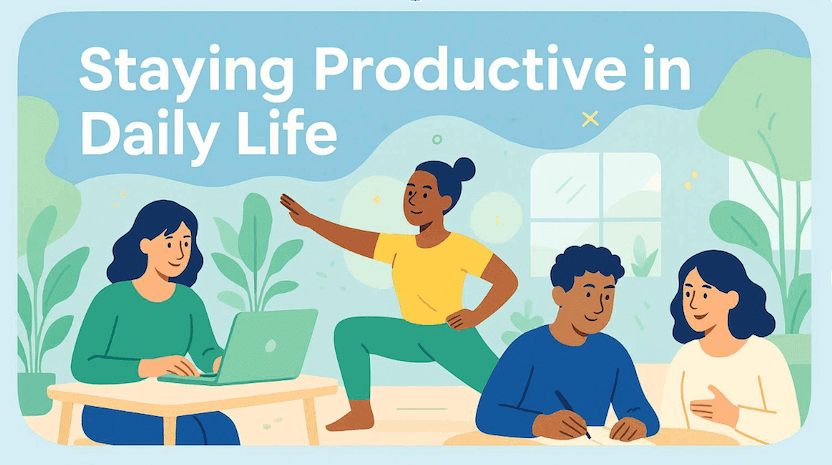
Table: Overview of Rhodiola health benefits
Health Benefit | Description |
|---|---|
Stress reduction | May help decrease stress and improve burnout symptoms |
Fatigue relief | Alleviates fatigue, improves mood and concentration |
Cognitive boost | May improve memory, attention, and learning |
Physical endurance | Shown to enhance stamina and reduce perceived exertion |
Mood support | Balances neurotransmitters to reduce anxiety and depression |
Here’s a side-by-side comparison: While caffeine or energy drinks give a quick spike followed by a crash, Rhodiola works more like a reset button, providing natural energy without jitters.
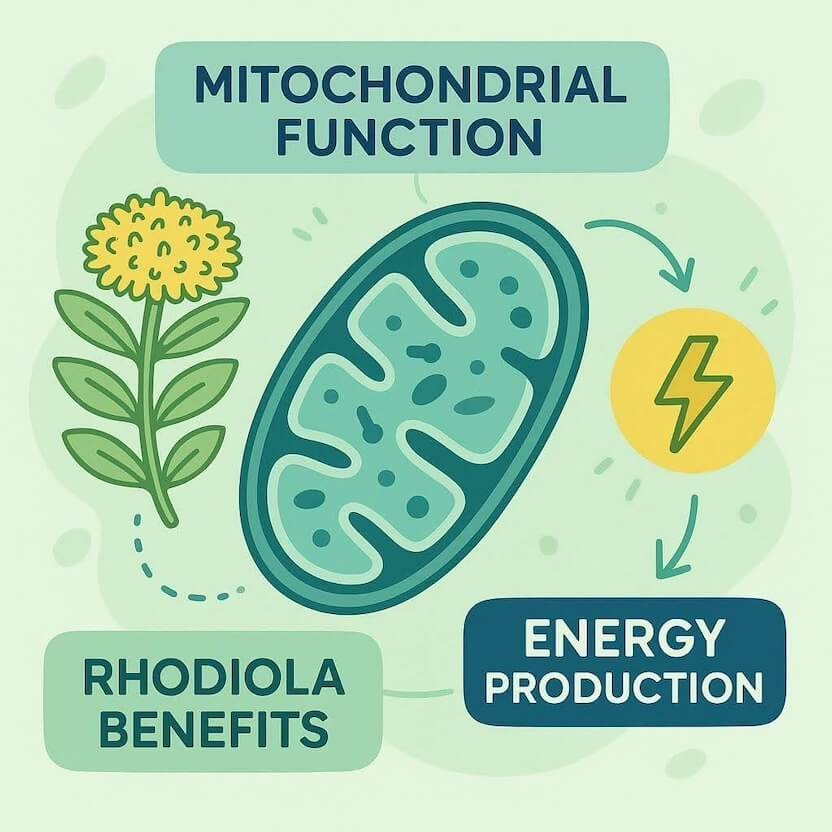
Caffeine’s effects and limitations
Coffee delivers a fast jolt, yet it can trigger jitters, anxiety, and disrupted sleep.
Feature | Coffee (Caffeine) | Rhodiola rosea |
|---|---|---|
Onset | 15-30 min | Unknown |
Duration | 2-4 hrs | Cumulative over days and weeks |
Common side effects | Jitters, crash, insomnia | Generally well tolerated; occasional reports of headache, dizziness, or dry mouth |
Sleep disruption | Likely | Minimal |
Rhodiola’s gradual onset and longer effect window help you power through without the late-afternoon slump.
— Dr. Dimitar Marinov, MD, RDN, PhDIn randomized controlled trials, standardized Rhodiola rosea extracts at 200–400 mg/day have yielded 10–20 % reductions in self-reported fatigue and modest (5–10 %) improvements in endurance over 4–12 weeks. However, study designs vary and larger, long-term trials are needed, so select third-party-tested extracts and adjust dosing based on individual response.
Rhodiola as a sustainable alternative
Rhodiola may be less likely to be associated with jitters or dependence compared with caffeine; however, long-term data on tolerance and withdrawal are limited. If you take antidepressants or blood thinners, consult your doctor first.
VitaRx’s Rhodiola supplements: A superior choice
Why choose VitaRx?
We prioritize doses commonly used in clinical studies (200–400 mg), standardized levels of rosavins and salidroside, and third-party testing—without unnecessary fillers.
Need dosage tips? Take one or two doses in the morning or early afternoon to avoid sleep interference.
A variety of names
Rhodiola also goes by king’s crown, rose root, and Siberian golden root—a testament to its cultural value.
Customer testimonials
Our community—parents, athletes, students, and busy professionals—reports clean, lasting energy and a calmer, more productive mindset.
Frequently asked questions (FAQ)
Here are some of the most frequently asked questions about Rhodiola for energy.
Final thoughts
Rhodiola rosea may provide steadier, jitter-free mental and physical energy by supporting the stress response and cellular energy pathways. We recommend checking with your healthcare provider before adding any new supplement to your routine—then experience the difference for yourself.
Sources and references
Editor

Derick Rodriguez
Derick Rodriguez focuses on editing health and wellness-related content. With over half a decade of experience in the digital realm, Derick has developed a unique skill set that bridges the gap between complex health concepts and accessible, user-friendly communication. His approach is deeply rooted in leveraging personal experiences and insights to illuminate the nuances of health and wellness topics, making them more approachable and empowering readers with knowledge and confidence.
Fact checker

Dr. Dimitar Marinov
Dr. Marinov has years of experience in scientific research and preventive and clinical medicine. His publications in peer-reviewed journals are on nutritional status, physical activity, and musculoskeletal disorders among adolescents.
At VitaRx, we're not just passionate about our work — we take immense pride in it. Our dedicated team of writers diligently follows strict editorial standards, ensuring that every piece of content we publish is accurate, current, and highly valuable. We don't just strive for quality; we aim for excellence.
Related posts
While you're at it, here are some other relevant articles you might be interested in.

Get your personalized vitamin recommendations in less than
5 minutes.
Get your personalized vitamin recommendations in less than
5 minutes.





